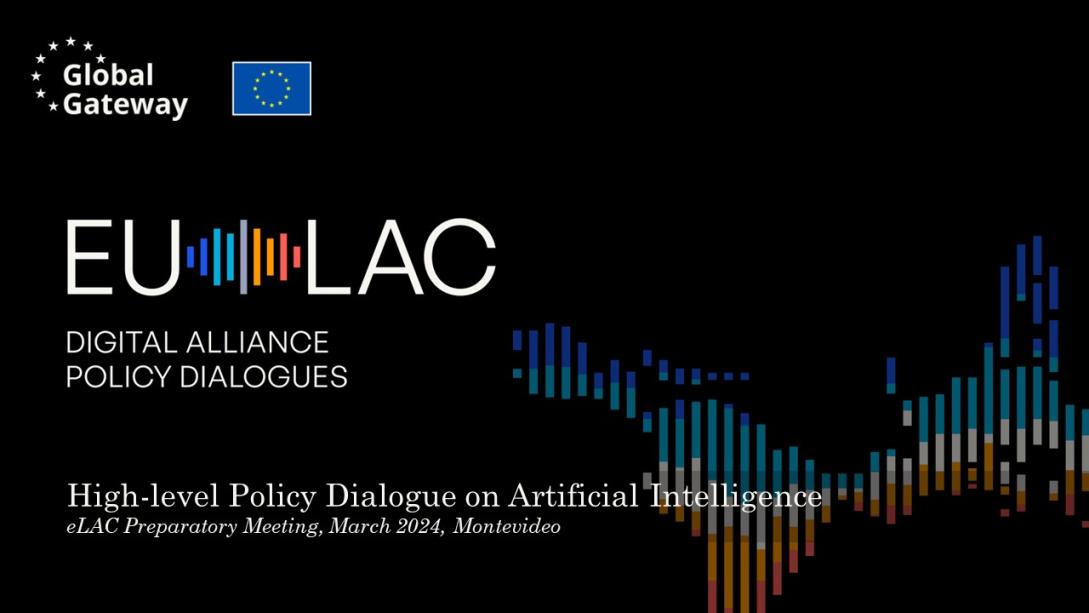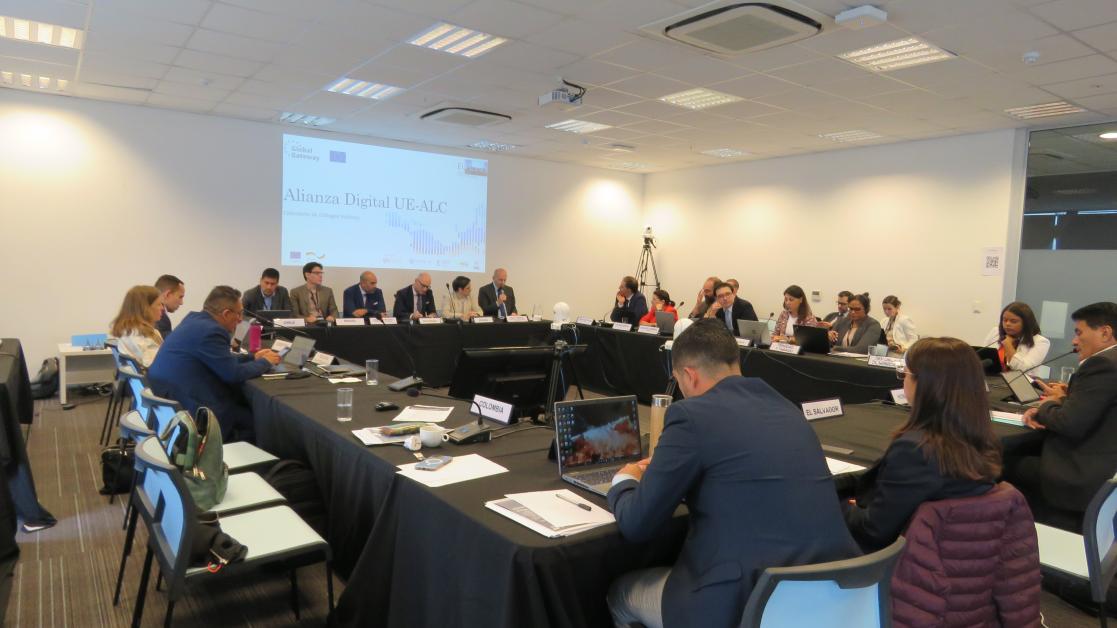Exploring the potential of Artificial Intelligence with Latin America & the Caribbean

This key issue brought together representatives from the EU and Latin American and Caribbean (LAC) countries in a Policy Dialogue on Artificial Intelligence in Montevideo on 13 March, as part of the EU-LAC Digital Alliance.
The EU Ambassador to Uruguay, Paolo Berizzi, participated in the opening alongside representatives from Brazil, Chile, Slovenia, Spain and Uruguay. Juha Heikkilä, IA Senior Adviser of the European Commission presented the EU AI Act as the EU’s strategic vision to promote the development and use of human-centric, sustainable, secure, inclusive, and trustworthy AI. The Czech Republic Minister of Industry and Commerce, Mr. Jozef Sikela, delivered a keynote speech on “the role of AI in Global Economy and Trade”.
Like all EU-LAC High-level Policy Dialogues, the sessions followed a multi-stakeholder approach with participation of civil society, academia and the private sector in a hybrid format. The programme focused on 3 main topics: 1) governance, regulatory convergence and standards, 2) training and capacity building and 3) the uses of AI for sustainable development.

European Union, 2024
Together for a human-centric AI
In terms of governance, the EU's coordinated plan on AI (2021) and the EU AI Act emphasise global collaboration on trustworthy AI founded on an open, values-based approach. This approach is also reflected in the Santiago Declaration . Latin American and Caribbean countries are themselves formulating national policies and strategies on AI to cultivate talent, stimulate research and innovation, and establish regulatory frameworks. The shared values between the EU and LAC can facilitate convergence to effectively address these common challenges.
The Dialogue allowed participants to share AI use cases and applications for sustainable development and showcase AI applications for the public sector. It will be followed up by training for policymakers so they can leverage the opportunities offered by AI. For instance, the European Commission and UNESCO will work together on a €4million project to support partners in the implementation of UNESCO’s Recommendation on the Ethics of AI.
An EU-LAC Digital Alliance that delivers
This event takes place in the context of the preparatory meeting for the IX Ministerial Conference on the Information Society (eLAC 2024), coordinated by the United Nations Economic Commission for Latin America and the Caribbean (ECLAC), that will be held in Chile in November. In addition to the AI policy dialogue, the EU is participating in two other sessions: one on bi-regional cooperation in the digital field and the other on connectivity and 5G security.
This EU-LAC Dialogue on AI aims to sustain and advance the work initiated during the EU-LAC Digital Alliance conference in Cartagena de Indias, in November 2023. The initiative on AI was led by Chile, Brazil, Uruguay, Spain, Slovenia and the European Commission.




